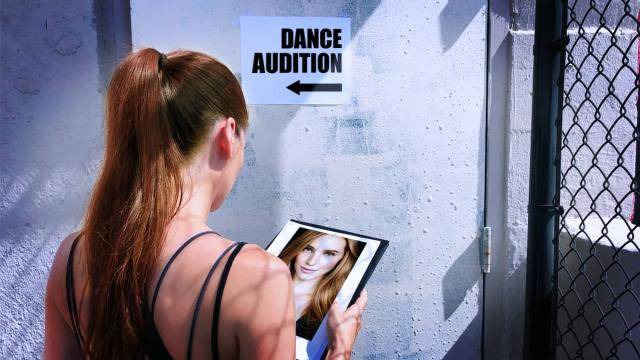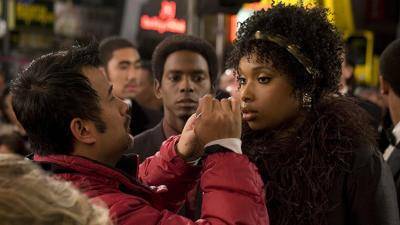We’ve all been there: that feeling of dread the morning of an audition you have been planning to attend since it posted. You have already chosen what to wear and printed your headshot and resume, but now you can’t seem to build the confidence and drive to get yourself out the door. You are not alone; continuing to show your face at dance auditions can be exhausting and overcoming burnout from the countless cattle calls seems unachievable. You repeatedly tackle the scheduling, planning, and emotional turmoil, but feel like you continue to get cut at every open call and no dance jobs to show for it. While we see the difficult task at hand, clearly we forget about the hidden benefits we gain from the effort we have been putting forth. Aside from booking the job, auditioning can be extremely beneficial to your career in a multitude of ways, and these mental audition tips will help you walk into every audition seeing every benefit for your time spent.
Though it doesn’t seem appealing as a quality to possess, handling rejection is also an acquired expertise.
In Some Cases, It’s a Free Class!
Nobody can resist something that is free! If something costs you nothing, that means you have nothing to lose! Although for company auditions there are sometimes audition fees, the majority of commercial auditions are free to attend. Regardless, treat an audition like a dance class and a chance to learn something new. Dance auditions can be an opportunity to hone your skills, receive corrections, learn new material, familiarize with a choreographer’s unique movement vocabulary, and experience her/his different teaching style that you have not yet experienced. Practicing performance skills in technique class is not always the first priority, but this is a forced opportunity to deliver the same stage presence as a rehearsed production. You’ll feel some added pressure, as opposed to being in class, but visualizing an audition as a daily class may also ease the pressure placed on yourself to be perfect at every moment.
Learning Your Name
Though you may not see it, each attended audition is slowly building a relationship with that company and/or choreographer. There’s a chance they may remember you from the past and be thrilled to see your growth and improvement. Some companies specifically look for dancers who return multiple times, showing commitment and true interest in the job. Repeatedly going to the same audition will also give you a better understanding of how the company runs their auditions, what to do to prepare, and the qualities a director seeks. Each audition could be stepping you closer to getting hired, and though it’s daunting to think about how many steps it may take, know you are much closer than before you started.
Networking
The dance industry doesn’t only revolve around those behind the judges’ table. Since you are being placed in a packed room of your dancing peers, take this opportunity to engage with those around you. Meeting other dancers can lead to industry connections, information on dance jobs, audition tips, added dance motivation, and valuable advice from those in your position. Some feel they achieve their best audition headspace by keeping to themselves in the waiting room, and that is perfectly fine, but holding casual conversation could relax you and take your mind off of the task ahead. Avoid going too far, because you don’t want to give the impression that you have more interest in being a social butterfly than booking the job.
Improve Your Auditioning
Can you recall an audition where you’ve been less than impressed with yourself, while knowing you can surely dance better under other circumstances? Instead of blaming the circumstances or your talents, you may need to improve your auditioning. Auditioning is its own unique skill that must be practiced to improve. Unlike taking class, auditioning mixes fast choreography retainment and stress management, all the while in a completely foreign atmosphere. Some think that taking class is practice enough but if you don’t continue to place yourself in an audition environment, you will not improve how you perform under the added pressure which cannot be duplicated in a class setting. The more dance auditions you attend, the more relaxed and prepared you will feel at each open call. Though it doesn’t seem appealing as a quality to possess, handling rejection is also an acquired expertise that slowly gets easier to navigate each time.
Correct Timing
Unfortunately, you can be the perfect candidate for a role and still not get booked! This is when timing comes into play, because you won’t be receiving your perfect spot if it’s not available at the time you’re auditioning. That spot could be wide open and waiting for you the next time you audition, pending if you don’t talk yourself out of attending! Even if a job is meant to be yours someday, you may also not be prepared as a technician or artist yet. If it feels too early in your career, still continue attending calls for jobs you want to book in the future. Build that relationship and carry the hope that you will attend the call when your spot is available.
Treat an audition like a dance class and a chance to learn something new.
While auditioning can feel very redundant and pointless if you aren’t being rewarded with bookings each time, realize that every audition teaches you something valuable. When you set a simple goal for yourself before going into the audition that is within your control to achieve, like “I want to focus on picking up the choreography efficiently today”, you’re giving yourself the power to have a successful audition, rather than relying on external validation. Seeing these benefits and overcoming burnout and rejection depression is extremely important for your mental health as a dancer. My statement may seem simple, but I continually tell myself that if I want a certain job, I must attend the audition. Regardless of how many times I have attended before, if I still want the job I must go. I give myself no right to be upset over not having a certain job and silence my own complaining if I didn’t attend every audition that was held for it.




